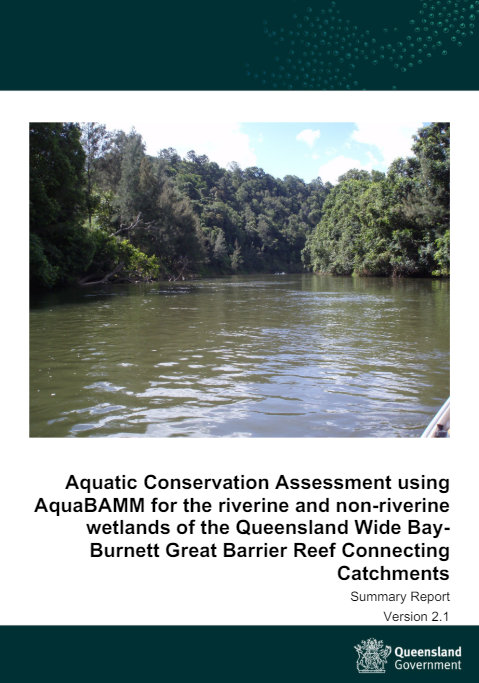|
|
Wide Bay-Burnett Great Barrier Reef Connecting CatchmentsAquatic Conservation Assessments (ACAs) are available for wetlands within the Wide Bay-Burnett area. The AquaBAMM methodology has been applied separately to the non-riverine (i.e. palustrine and lacustrine) and riverine wetlands within each of the six catchments. The results for the Baffle catchment supersede the results completed for the Baffle as part of the Great Barrier Reef Catchments Riverine ACA (v1.1), Great Barrier Reef Catchments Non-riverine ACA (v1.3), and Burnett River ACA (v1.1). View the Wide Bay-Burnett Connecting Catchments Summary Report, Flora, Fauna and Ecology Expert Panel Report and Information Sheet. There is overlapping coverage between this report and the Wide Bay-Burnett Connecting Catchments report. Find out more about accessing the data and reports on the get mapping help page. The riverine and non-riverine data and reporting (information on specific environmental values, by location) may be accessed through WetlandMaps. Information on specific environmental values, by location, is also available via Environmental reports online. For further information on AquaBAMM and the ACA results email biodiversity.planning♲des.qld.gov.au Quick facts
Last updated: 7 June 2024 This page should be cited as: Department of Environment, Science and Innovation, Queensland (2024) Wide Bay-Burnett Great Barrier Reef Connecting Catchments , WetlandInfo website, accessed 8 May 2025. Available at: https://wetlandinfo.des.qld.gov.au/wetlands/assessment/assessment-methods/aca/wide-bay-burnett-gbr.html |

 — Department of the Environment, Tourism, Science and Innovation
— Department of the Environment, Tourism, Science and Innovation


